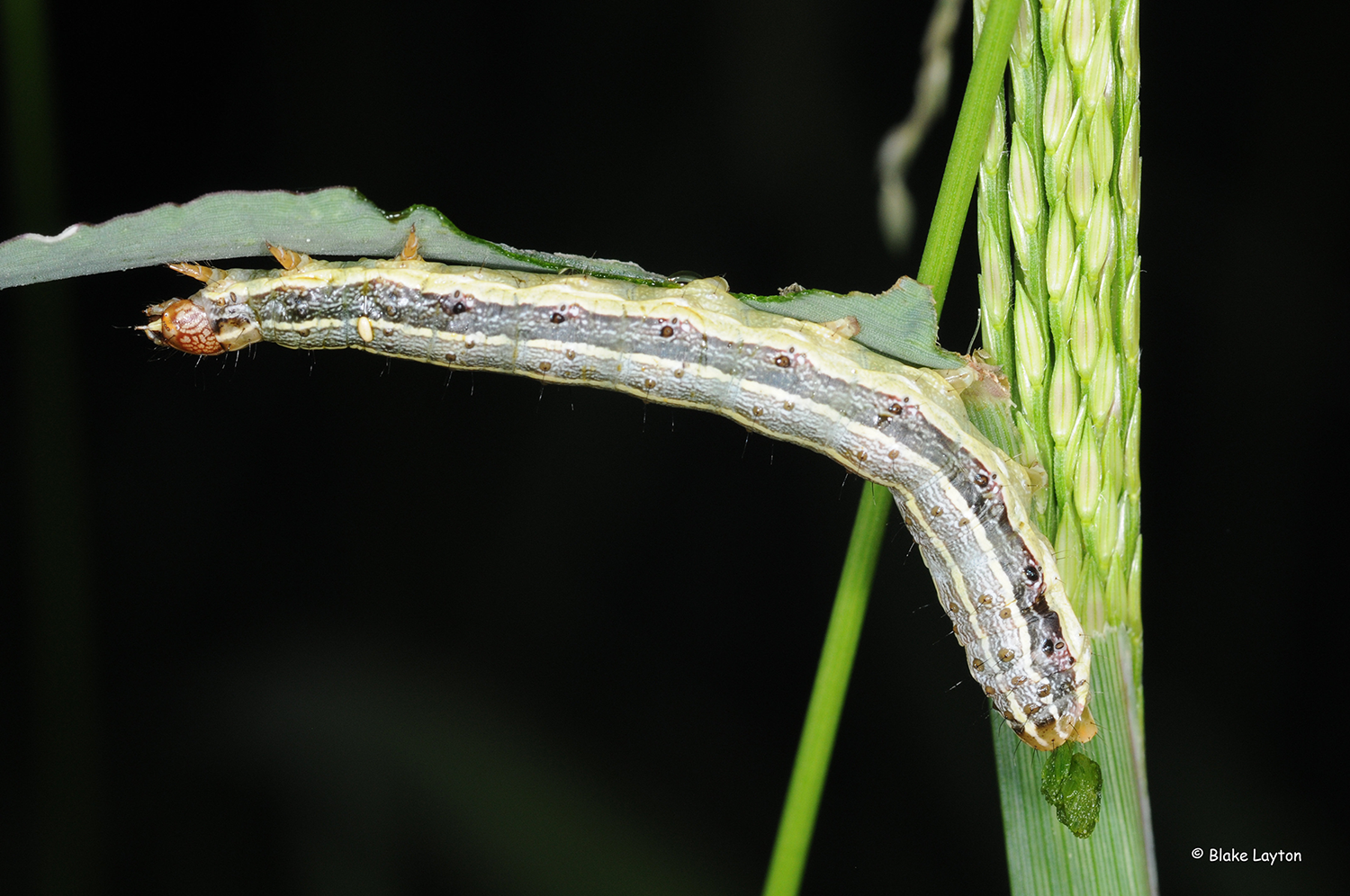Bug's Eye View, Fall Armyworm, Vol. 4, No. 19

Fall Armyworm
Spodoptera frugiperda
Order: Lepidoptera
Family: Noctuidae
Hay producers and cattlemen should be alert for fall armyworms for the remainder of the growing season. Fall armyworms are the most damaging insect pests of bermudagrass hayfields, and undetected infestations can eat a lot of grass in a surprisingly short time. A hay field that looks beautiful and almost ready to cut on Thursday morning may be nothing but stems by Saturday. As the name implies, populations are highest in the fall, but damaging infestations often begin occurring in July. This insect does not overwinter in the state, but moths migrating from more southern regions return each year to produce several generations, with numbers increasing each generation. Some fall armyworms are present every year, especially in southern Mississippi, but heavy outbreaks sporadically occur, reaching damaging numbers earlier in the year and/or farther north and resulting in the need for more insecticide treatments throughout the state. Fall armyworms will also damage bermudagrass in sports fields and home lawns.
Control: Fall armyworms are easily controlled with timely insecticide sprays, but you have to detect infestations early and have your spray equipment ready to go. For hayfields, treatment is recommended when counts exceed three caterpillars per square foot (only count caterpillars that are ½ inch long or longer). Mature caterpillars are about 1 ¼ inches long and vary in color, from light green to beige to almost black.
See Extension Publication 2717, Fall Armyworms in Hayfields and Pastures, for a list of recommended insecticides, application rates, pre-grazing intervals and pre-harvest intervals. Information on scouting and thresholds is also included.
See pages 12 and 13 of Extension Publication 1858, Insect Control in Commercial Turf, for information on fall armyworms in commercial turf. Before treating sports fields be sure to verify that the product you plan to use is specifically labeled for use on sports turf and carefully check the re-entry interval.
See page 8 of Extension Publication 2331, Control Insect Pests in and around Home Lawns, for information on how to control armyworms in home lawns. Note that granular products do not work well against leaf-feeding pests because most of the granules fall past the target pest. Sprays provide much better control.
Blake Layton, Extension Entomology Specialist, Mississippi State University Extension Service.
The information given here is for educational purposes only. Always read and follow current label directions. Specific commercial products are mentioned as examples only and reference to specific products or trade names is made with the understanding that no discrimination is intended to other products that may also be suitable and appropriately labeled.

